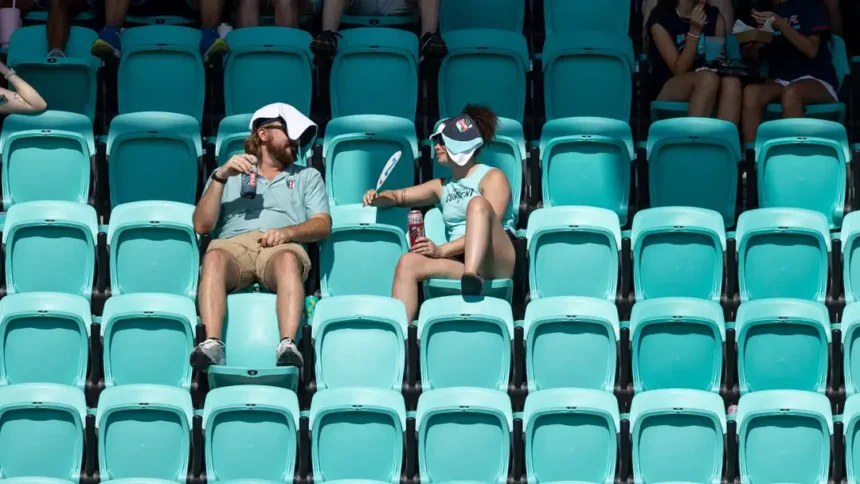The NWSL faces growing controversy after Kansas City Current’s match against Orlando Pride was delayed by over three hours due to extreme heat. The incident has sparked backlash from players, coaches, and the NWSL Players Association, with fines reportedly being considered for the club.
Kansas City Current’s weekend clash with Orlando Pride has sparked significant controversy after a three-hour weather delay, leading to a potential fine being imposed by NWSL commissioner Jessica Berman. The delay, caused by extreme heat in Kansas City, created frustration among players, coaches, and supporters, with the NWSL Players Association (NWSLPA) also voicing concerns about the league’s handling of the situation.
Heat-Related Delays Spark Backlash
The match, originally scheduled for 3 p.m. local time, was delayed until 6:28 p.m. due to soaring temperatures. The heat on the field surpassed 90°F, a threshold near the NWSL’s official policy of 93.2°F for postponing matches. Despite initial concerns from both teams, the league insisted the match go ahead, opting to rely on real-time temperature readings and its extreme heat policy.
According to reports, both Kansas City Current and Orlando Pride contacted the league at around 10:30 p.m. local time, asking for a rescheduling of the match to later in the day. The league responded by sticking to the original schedule, opting for the heat policy despite growing concerns over safety. This led to the match being moved to an online stream, as the broadcast slot was no longer feasible.

Safety Concerns and Medical Incidents
The delay resulted in serious concerns regarding player safety. Reports from the University of Kansas Health System indicated that 16 people required medical attention for heat-related illnesses, with one fan even being taken to a nearby hospital. Danielle Russell, vice president of the KC Blue Crew supporters group, shared her frustrations, noting that the safety concerns had been flagged before the match, stating, “Everyone knew, as soon as the schedule came out, we circled that game. We were like, ‘This is going to be bad. This is going to be dangerous.’”
The NWSL Players Association has long raised concerns about such scheduling, specifically flagging potential issues with August kickoffs in Kansas City. NWSLPA Executive Director Meghann Burke explained that the decision to delay the match in 15-minute intervals appeared misguided, adding that the league seemed more focused on meeting a national broadcast slot than prioritizing player safety.
The League’s Response and NWSLPA’s Concerns
In response to the incident, the NWSL issued a statement to The Athletic, explaining that it aims to play matches as scheduled whenever safely possible. However, they did acknowledge the challenges faced with extreme weather conditions, saying, “We primarily rely on real-time, on-site weather data to make informed decisions in accordance with our inclement weather policies and protocols.”
Burke, who had already been vocal about concerns regarding the league’s approach to heat-related risks, voiced her discontent, particularly with how the league handled the situation. “This should not be a union decision or a legal decision. It’s a medical issue, and the medical experts need to make that call,” she said, referencing the league’s handling of heat measures in the past.
This incident follows earlier criticism of the NWSL this season when the league resumed a match after Angel City’s Savy King collapsed on the pitch, highlighting ongoing concerns over the league’s handling of player safety in the face of external pressures.

The Fallout and What’s Next
As the Kansas City Current and Orlando Pride prepare for their next matches, with KC traveling to Portland on Saturday, the NWSL’s handling of extreme weather delays remains under scrutiny. The league is reportedly considering fines for Kansas City Current, although the outcome of these potential sanctions remains to be seen. The NWSLPA continues to push for reforms to ensure that player safety is always prioritized over external pressures such as broadcast slots.











